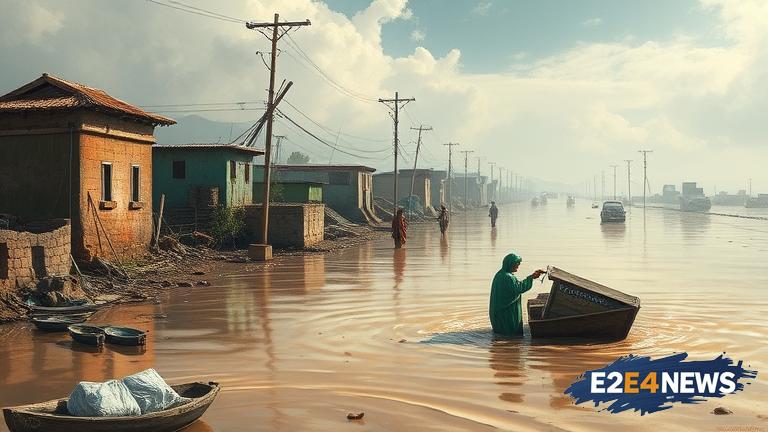Pakistan has been hit by one of the worst floods in its history, with the disaster affecting over 33 million people and causing widespread destruction across the country. The floods, which were triggered by heavy monsoon rains, have resulted in the loss of hundreds of lives and left millions without access to basic necessities like food, water, and shelter. The government has declared a state of emergency and is working to provide relief to those affected, with the military and rescue teams working tirelessly to evacuate people from flooded areas. The international community has also come forward to provide aid, with countries like the United States, China, and the United Arab Emirates pledging support. The floods have caused significant damage to infrastructure, including roads, bridges, and buildings, and have also affected the country’s agricultural sector, with crops and livestock being destroyed. The economic impact of the floods is expected to be severe, with estimates suggesting that the disaster could cost the country billions of dollars. The Pakistani government has established a relief fund to support those affected, and is also working to provide medical aid and shelter to those in need. The United Nations has also launched an appeal for aid, with the organization’s secretary-general calling for international support to help Pakistan respond to the disaster. The floods have also raised concerns about the country’s preparedness for natural disasters, with many criticizing the government for not doing enough to prevent the disaster. The Pakistani military has been praised for its role in the relief efforts, with the army and air force working together to evacuate people and provide aid. The government has also announced plans to rebuild and restore affected areas, with a focus on providing support to those who have lost their homes and livelihoods. The floods have also highlighted the need for climate action, with many experts pointing out that the disaster is a result of climate change. The Pakistani government has pledged to take action to reduce the country’s carbon footprint and to work towards a more sustainable future. The international community has also been called upon to do more to support countries like Pakistan that are vulnerable to climate-related disasters. The floods have caused significant disruption to daily life, with many schools and businesses closed, and transportation links disrupted. The government has announced plans to provide compensation to those who have lost their homes and livelihoods, and is also working to provide psychological support to those affected by the trauma of the disaster. The relief efforts are expected to continue for several months, with the government and aid agencies working together to provide support to those in need. The floods have also raised concerns about the risk of waterborne diseases, with many areas affected by contaminated water. The government has announced plans to provide medical aid and to work towards preventing the spread of diseases. The Pakistani people have shown remarkable resilience in the face of the disaster, with many coming together to support each other and to provide aid to those in need. The government has praised the public for their response to the disaster, and has called on everyone to continue to support the relief efforts. The floods are a devastating reminder of the importance of disaster preparedness and climate action, and the need for international cooperation to support countries affected by natural disasters.
